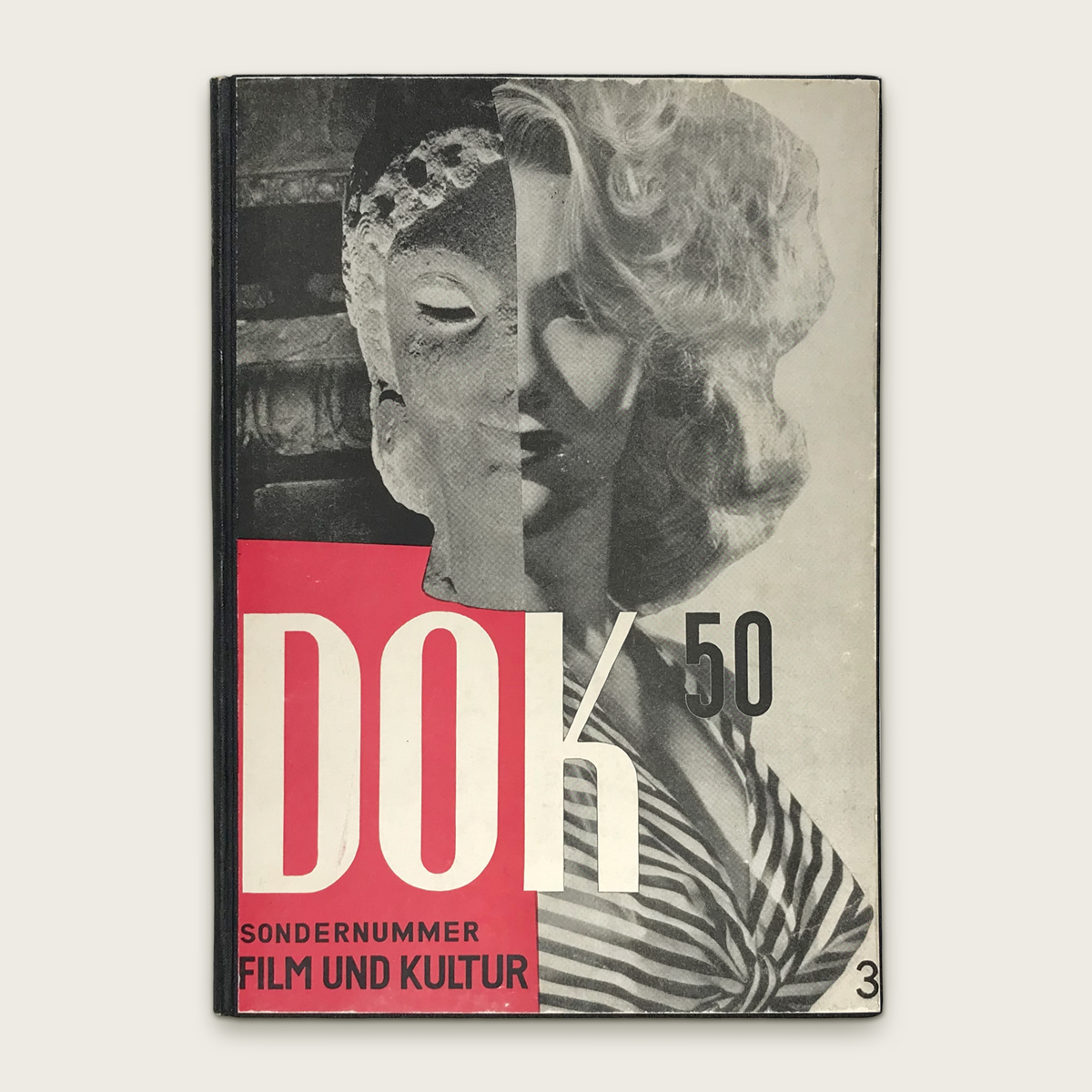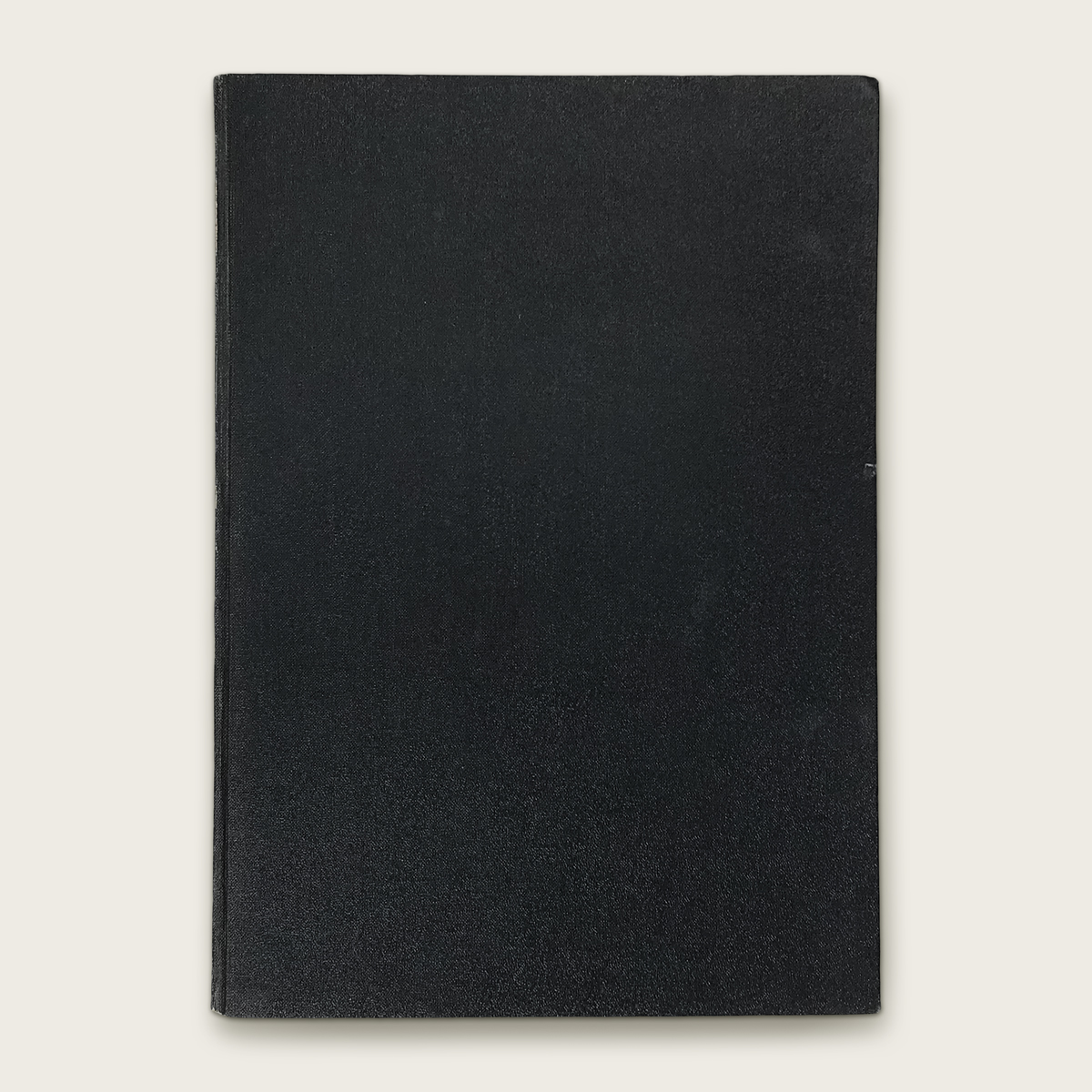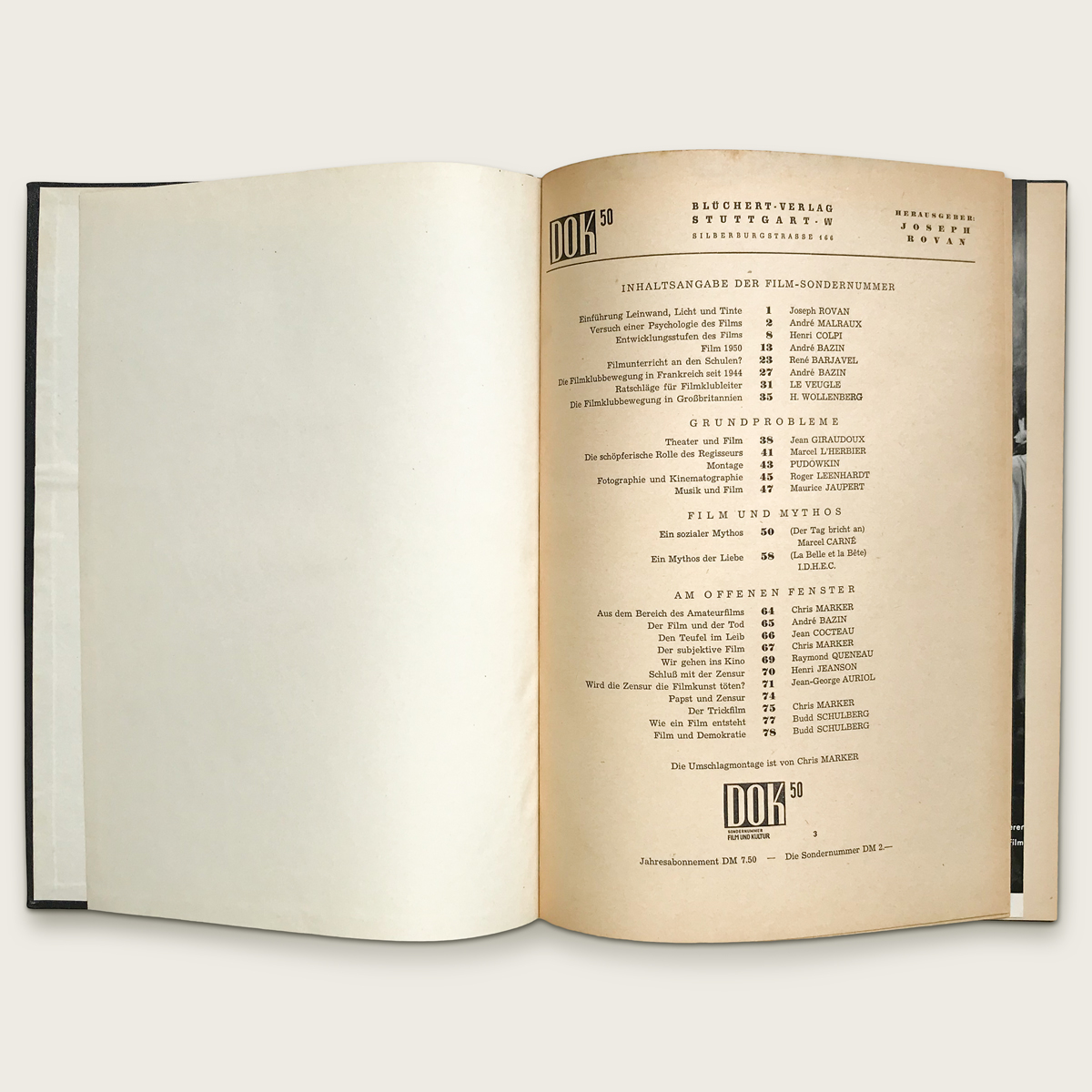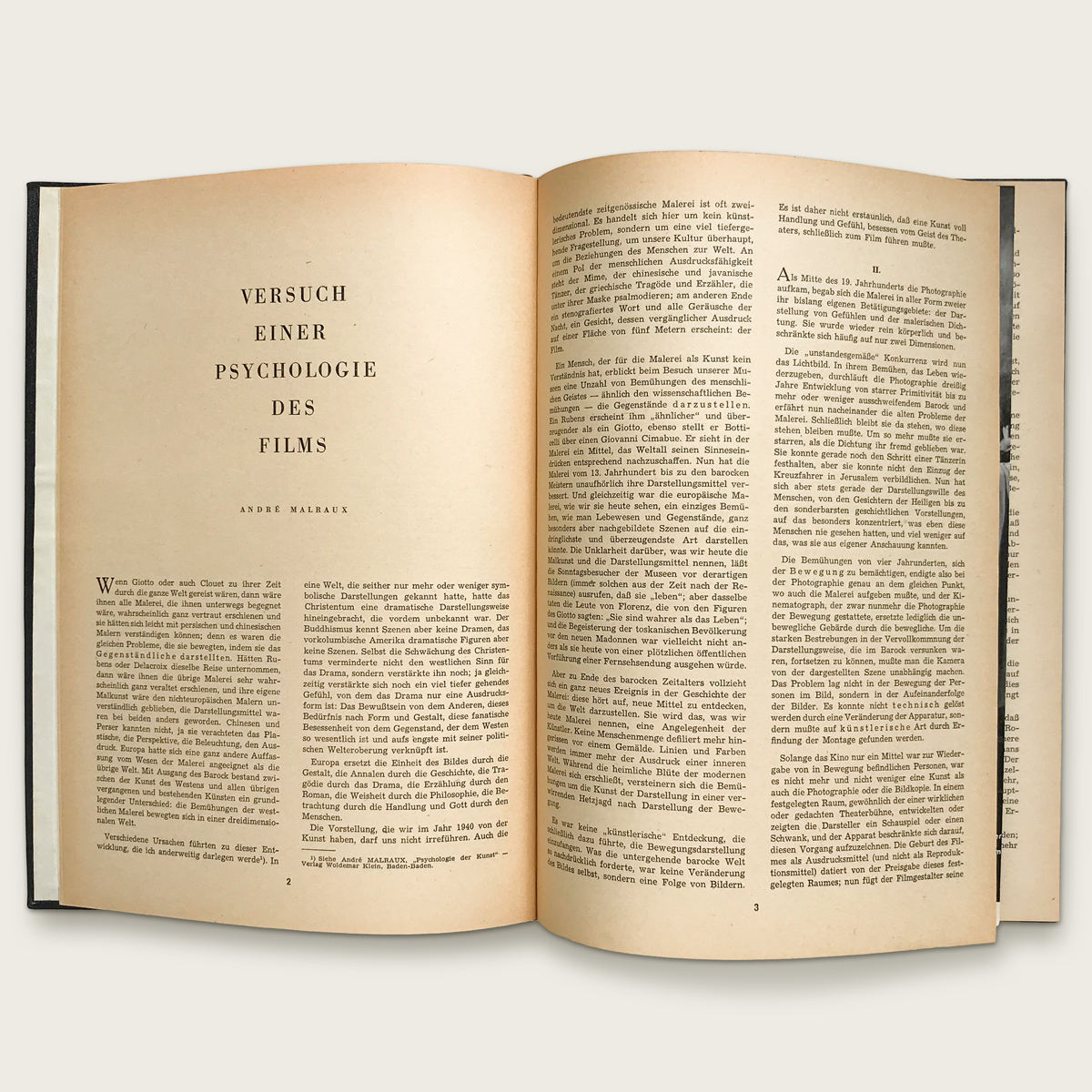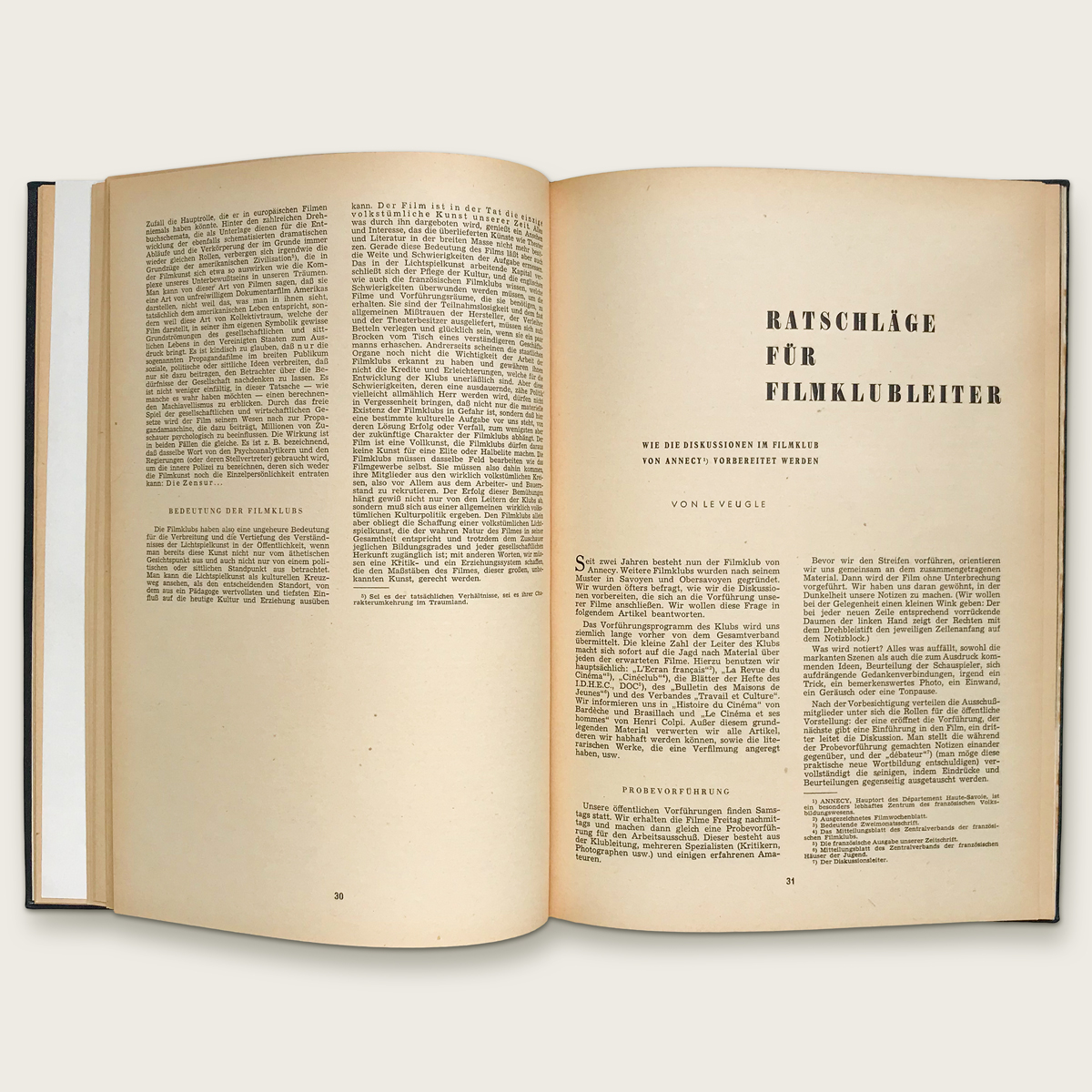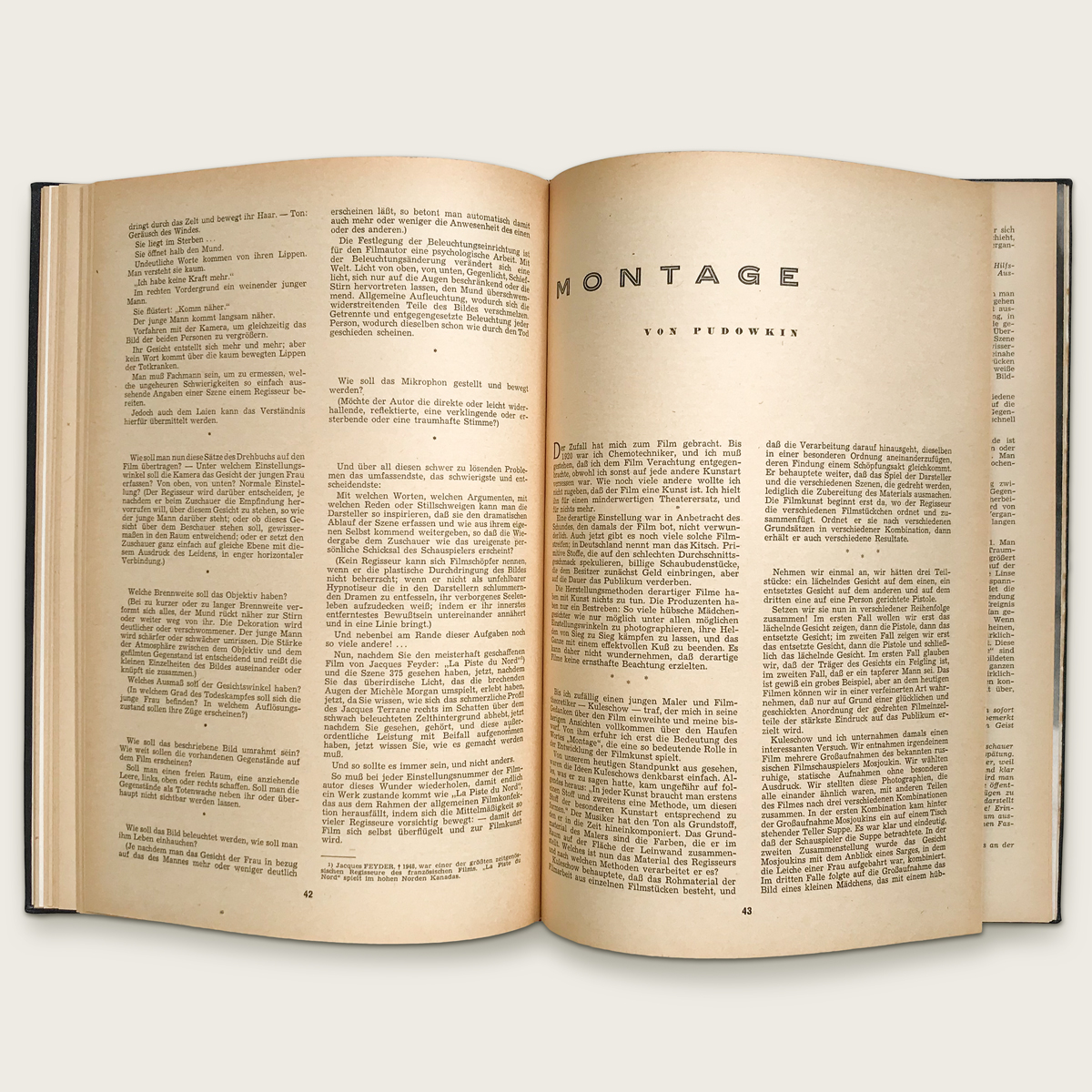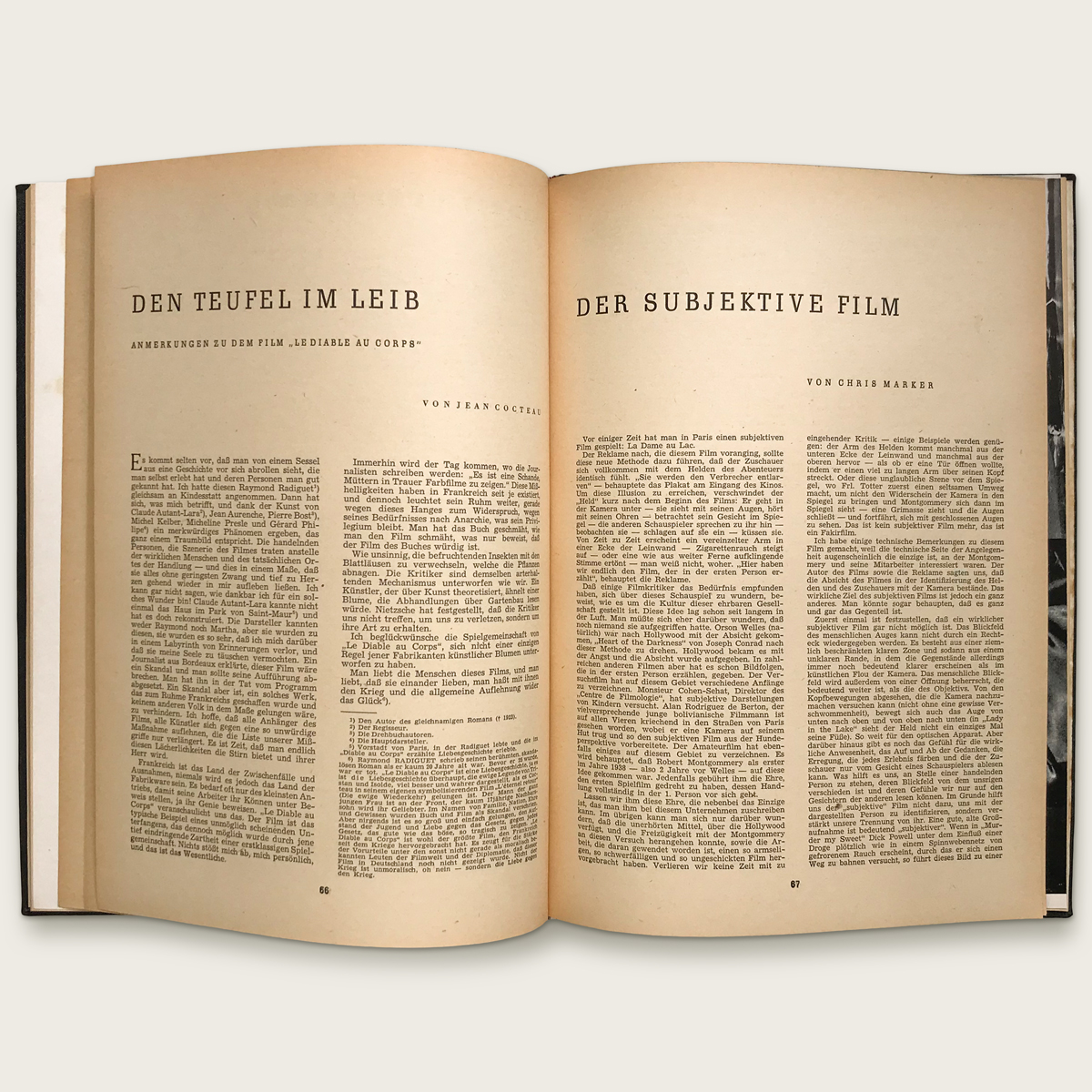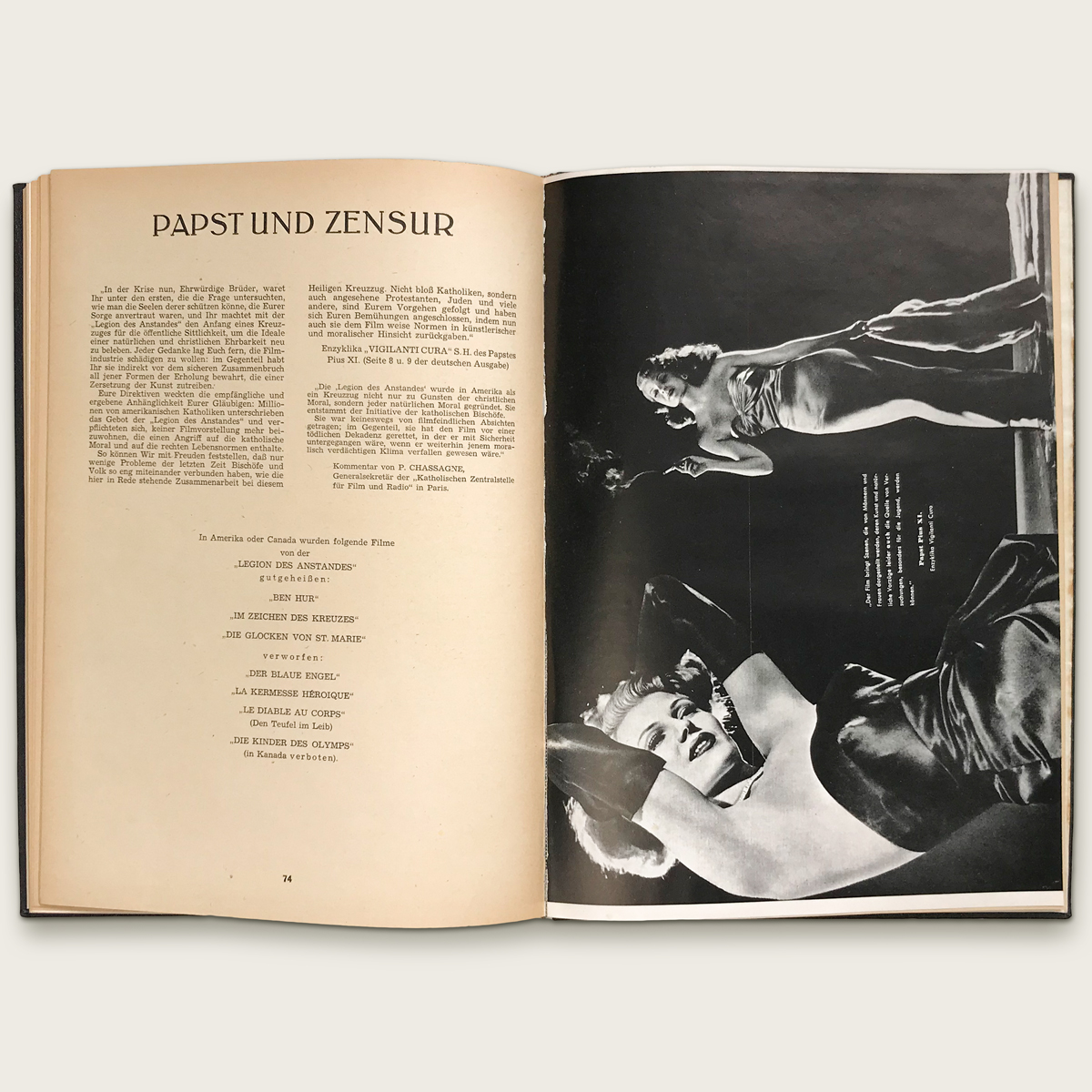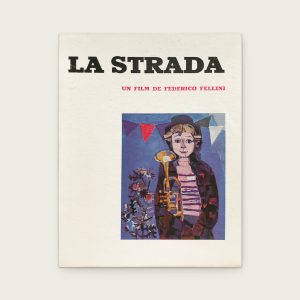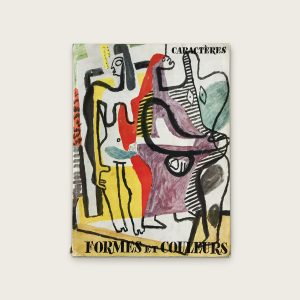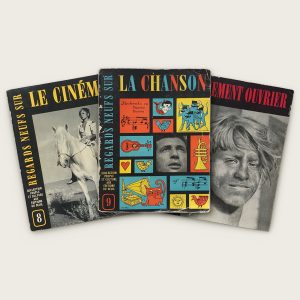DOK 50 Heft 3: Sondernummer Film und Kultur. 3
Directed by Joseph Rovan
€1.300,00
incl. VAT plus Shipping Costs
Stuttgart: Blüchert-Verlag, 1950. First edition. Folio (30×21,5cm), [as issued, published as loose leaves] later bound in black half-linen using the original title cover, with silver-lettered spine. pp. [1] Title, [1] Index, 79, [3] plates. Text in German. Slight rubbing to cloth, with a tiny dent on rear cover. Near fine.
Joseph Rovan, actually Joseph Rosenthal, was born in Munich in 1918. Shortly after Hitler came to power in 1933 his family fled to France, where he later joined the Réstistance. In the Réstistance, Rovan was responsible for the production of counterfeit documents until he was arrested by the Gestapo in February 1944 and deported to the concentration camp Dachau, which he survived.
In the stimulating intellectual climate of postwar France, numerous independent associations for popular education arose immediately after the Libération. One of them was the group Peuple et Culture, of which Joseph Rovan served as one of their directors.
In 1946, Rovan was invited by the French military administration to participate in the reconstruction of the German cultural sector. For this purpose, he initiated several Franco-German seminars in Germany, presenting not only literature and theater, but also films. André Bazin, then head of the film department of Travail et Culture and Chris Marker, who assisted Bazin in his daily work in the film department, assured Rovan of their help.
In October 1946, the first Franco-German seminar took place in the youth hostel of Titisee in the Black Forest. Over time, the seminars were held annually in the French sector in Germany and became more and more exclusively dedicated to film. The first major international meeting took place in March 1950 and was attended by many renowned directors, actors and critics, like Robert Flaherty, Curt Oertel, Georges Rouquier, Wolfgang Staudte, Helmut Käutner, Jean-Pierre Melville, Josef von Baky, Dieter Borsche, Howard Vernon, Walter Hagemann, Theodor Kotulla and Enno Patalas.
Towards the end of 1947, Chris Marker founded and edited the first issues of DOC magazine under the name Chris Villeneuve. DOC was designed entirely in the spirit of Popular et Culture for popular animateurs, and contained a selection of literary extracts, background information on works of literature, music, art and film, and tips on how to work successfully with these materials in the context of popular education.
As German counterpart to the magazine, Joseph Rovan launched DOK in 1949. Unlike the French DOC, which appeared between 1947 and 1950 with 39 issues, DOK published only three issues and ended in 1950 with this special issue.
This extremely scarce special issue DOK 50 Heft 3: Sondernummer Film und Kultur. 3, was published on the occasion of the International Film Club Conference in 1950 and features articles by André Malraux, Pudowkin, René Barjavel, Joseph Rovan, Jean Giraudoux, André Bazin, Jean Cocteau, Raymond Queneau, Maurice Jaubert, Jean-Georges Auriol, Henri Colpi, Hans Wollenberg, Le Veugle, Buddy Schulberg, Henri Jeanson and Chris Marker.
Rovan reports in his introduction on the success of the first major international meeting in March of the same year in 1950 with special thanks to Chris Marker, „Geschlossenheit und Reichtum des Inhalts, ebensowohl wie die symbolische Gestaltung des Einbands sind der Mitarbeit Chris Marker’s zu verdanken, ohne den dieses Heft niemals das Licht der Kritik zu ertragen imstande gewesen wäre.“ [The coherence and richness of the content, as well as the symbolic design of the cover, are thanks to the collaboration of Chris Marker, without whom this booklet would never have been able to endure the light of criticism.]
With significant contributions to film theory, such as Pudowkin’s article on Montage, Giraudoux’s on Film and Theater, and Marker‘s writings on the Animated Film and Subjective Film, to name a few, this is an important document of German film history and film theory.
OCLC (10/2021) lists only one holding at New York Public Library.
